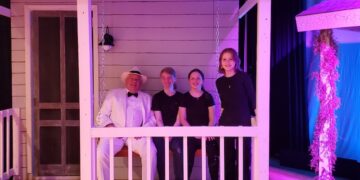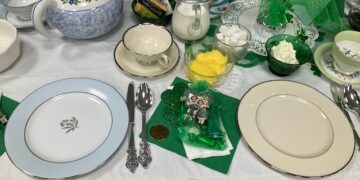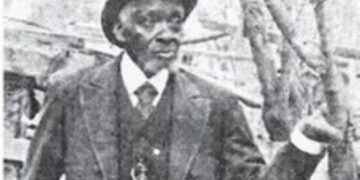
Smith’s early novels are partly autobiographical: The Last Day the Dogbushes Bloomed, contains detail from her childhood, Something in the Wind (1971) includes memories from her college years, Fancy Strut (1973) deals with the time she spent in Alabama, and Black Mountain Breakdown (1981) features a young woman taken down my emotional trauma. Her issues reflect those of Smith when her first marriage ended in divorce.
After her return to North Carolina and the breakup of that marriage, Smith moved away from the autobiographical mode and began to write novels that focus on the people, history and culture of Southwest Virginia. Oral History (1983), Fair and Tender Ladies (1988), The Devil’s Dream (1992), and Saving Grace (1995), all feature strong women who love their rural area but simultaneously feel the need to break away from traditional roles. Her later novels, particularly, The Last Girls (2003) and Guests on Earth (2013), again combine autobiographical elements in her creation of strong, striving women.
Silver Alert, which came out earlier this year, in one way at least, continues that trend, for two of its main characters are an aging couple like Lee herself and her second husband, Hal Crowther. She told Wylie Cash that the idea for the novel came when she and her husband, driving back to North Carolina from a vacation in Key West, saw highway signs on U. S. 1, announcing a “silver alert.” She says, “We decided that it was an elderly guy who found a set of car keys in an old golf shoe, and he’d taken off in his car with the mani-pedi girl from the assisted living place.”
After three years, their playful story-telling became, for Smith, the tale of the Atlases. The wife, Susan, developed early onset Alzheimer’s disease and ten years later, in the immediate present, has lost nearly all awareness of the people and culture around her in her South Florida home. Thanks to her husband’s business success, the couple is well off, but Smith certainly makes the point that money and material possessions mean little at the end of life.
Herb, her 83-year-old husband, has, for these ten years, devoted his time and attention to Susan and, in the process, ignored his own declining health. His physical problems, including Stage 4 prostate cancer, are bringing him down and making him even more irascible than he’s been throughout his life. Both Atlases have adult children and grandchildren from earlier marriages who are planning to organize an intervention that will send the couple to a luxury nursing home in Delray Beach, Florida. Herb is not ready to be warehoused but knows that their plan is inevitable.
Enter the third major character into the novel, DeeDee Mullins, the young woman a social worker has hired to care for Susan’s nails. Ashamed of her background, DeeDee has renamed herself Renee Martin. Despite her horrific past that includes being sold for sex, DeeDee is a survivor. She is on the mend–her native intelligence and personal warmth made her the star of the rehab center where she was sent after being arrested for prostitution. There she has become an “esthetician,” and now works
at the agency that sends her to Susan. Her care helps control Susan, but DeeDee has her own problems, after “hooking up” with an eccentric college in Florida for the summer. Despite her years of being involved in sexual activity that should have left her sterile, she becomes pregnant.
The road trip that ultimately gives the novel its title begins when Herb finds the keys to his Porsche and offers to take DeeDee home after she comes to their house to tell him and Susan goodbye. They end up on a road trip first to Key West; later, they head back upstate toward Disney World–DeeDee has had a long time obsession with Disney princesses. No magic endings, but the novel’s strength lies in Smith’s ability to show how people generations apart can interact in a mutually valuable way. In praise of the novel, Laurie Hertzel writes In the Minnesota Star-Tribute:
Silver Alert is about end-of-life considerations — creeping dementia, terminal cancer, and anxious adult children trying to do the right thing while mostly doing the wrong thing. And yet because it is a Lee Smith novel, it is bursting with life and laughter and love, an absolute delight.
Anyone who has read Smith’s other novels will appreciate this one, too.





























